- シンクタンクならニッセイ基礎研究所 >
- 暮らし >
- ライフデザイン >
- Damage, Living Environment, and Reconstruction under the Great East Japan Earthquake-The 6th Survey of Nuclear Disaster Evacuees from Futaba, Fukushima, Summary of Results 2020
Damage, Living Environment, and Reconstruction under the Great East Japan Earthquake-The 6th Survey of Nuclear Disaster Evacuees from Futaba, Fukushima, Summary of Results 2020

保険研究部 准主任研究員 岩﨑 敬子
このレポートの関連カテゴリ
文字サイズ
- 小
- 中
- 大
1――Basic Information
Figures 1 and 2 show the distribution of age and sex of the respondents. As we can see from these figures, compared to the age and sex distribution reported in the national census, the age distribution of the respondents is left-skewed, with the majority of respondents in their late 60s. The sex distribution shows that the majority of respondents are male. In addition, since the survey was conducted after the tremendous disaster, it is possible that the distributions of the respondents' characteristics are significantly different from those of general questionnaire surveys. Therefore, it should be noted that the results of this survey do not necessarily indicate the general trend of Futaba residents.
1 This research has been supported by the following research grants.
Grant-in-Aid for Scientific Research (15 J09313, 26220502, LZ003), Research Grants of the Japan Center for Economic Research.
This study is approved by the Ethics Committee of the University of Tokyo (20-244).
2――Health conditions
3――Change in social capital
There are several indicators that are commonly used to measure social capital, but we focus on three items here. First, we check the level of "generalized trust" using GSS trust question, which is one of the most commonly used social capital measures. As shown in Figure 7, generalized trust among Futaba residents had been decreasing from 2013 to 2016 (Portion of those who think people can be trusted had been decreasing). However, since 2017, the portion of those who thinks people can be trusted has been gradually increasing (See Figure 7). The overall distribution is almost same as that of Japan as of 2019. On the other hand, Since Futaba had very high generalized trust level before the disaster, recovery to its original high level would take much longer time.
The second indicator of social capital, "frequency of mutual assistance with neighbors," also shows a gradual recovery trend. In addition, the third indicator of social capital, "trust to neighbors" also shows a gradual recovery trend since 2016, but both trends have been very moderate. It will take a very long time for social capital to recover, and we believe it is important to continue to monitor these changes over the long term.
4――Building relationship with residents at evacuation desitinations
5――Summary of the findings from the five rounds of surveys
(2) In particular, there was a possibility that mental health of those who had lived in temporary shelters for long time was in a serious condition. However, currently, even after many of the residents have already moved from temporary shelters to public reconstruction housings, mental health of residents in public reconstruction housings is in a serious condition, and continuous support is necessary.
(3) As to changes in income and health condition caused by the disaster, we find that the greater the extent of decrease or deterioration is, the greater the degree of decline in individual well-being tends to be. This implies the necessity of sufficient compensation to recover the original state of survivors’ well-being.
(4) The disaster has weakened social capital of Futaba residents, and recovery may take very long time.
(5) Keeping in touch with people who had been friends from pre-disaster time and participating in hobbies and volunteer activities after the disaster may help people maintain good mental health.
(6) Though relationship building with the residents of the evacuation destinations show some progress little by little, the progress is subtle and it is still an important challenge evacuees are facing.
(7) Aggravated present bias (procrastination tendency) due to disasters can lead a decline in mental health condition, but policies that promote interaction among residents and encourage good health behaviors can prevent such a decline.
These results have been presented in international and domestic academic conferences. Also, these results have been published in international academic journals. Furthermore, a book, Fukushima Nuclear Disaster and Mental Health was published from Nippon hyoron sha in March 2021. We intend to continue our analysis and contribute to improve disaster preparation/rehabilitation policies.
Participants of our surveys are approximately 27% of households of Futaba and the results do not represent all Futaba residents. Since the survey was conducted after a major disaster, the characteristics of respondents may be very different from general surveys and there is a possibility of an overestimation in deterioration of health condition in our results. Therefore, we need a special caution in interpreting the results, and any definitive judgments based solely on these findings should be avoided.
(2021年07月26日「基礎研レポート」)
このレポートの関連カテゴリ
関連レポート
- Damage, Information Acquisition Route, and Reconstruction Under the Great East Japan Earthquake-The 1st Survey of Nuclear Disaster Evacuees from Futaba, Fukushima, Summary of Results 2013
- Damage, Living Environment, and Reconstruction Under the Great East Japan Earthquake-The 2nd Survey of Nuclear Disaster Evacuees from Futaba, Fukushima, Summary of Results 2014
- Damage, Living Environment, and Reconstruction Under the Great East Japan Earthquake-The 3rd Survey of Nuclear Disaster Evacuees from Futaba, Fukushima, Summary of Results 2016
- Damage, Living Environment, and Reconstruction Under the Great East Japan Earthquake-The 4th Survey of Nuclear Disaster Evacuees from Futaba, Fukushima, Summary of Results 2017
- Damage, Living Environment, and Reconstruction Under the Great East Japan Earthquake-The 5th Survey of Nuclear Disaster Evacuees from Futaba, Fukushima, Summary of Results 2019

03-3512-1882
- 【職歴】
2010年 株式会社 三井住友銀行
2015年 独立行政法人日本学術振興会 特別研究員
2018年 ニッセイ基礎研究所 研究員
2021年7月より現職
【加入団体等】
日本経済学会、行動経済学会、人間の安全保障学会
博士(国際貢献、東京大学)
2022年 東北学院大学非常勤講師
2020年 茨城大学非常勤講師
岩﨑 敬子のレポート
| 日付 | タイトル | 執筆者 | 媒体 |
|---|---|---|---|
| 2025/06/30 | マスク着用の子どもへの影響-コロナ禍の研究を経て分かっていること/いないこと | 岩﨑 敬子 | 基礎研レポート |
| 2025/06/26 | マスク着用のコミュニケーションへの影響(2)-コロナ禍の研究を経て分かっていること/いないこと | 岩﨑 敬子 | 基礎研レター |
| 2025/06/23 | マスク着用のコミュニケーションへの影響(1)-コロナ禍の研究を経て分かっていること/いないこと | 岩﨑 敬子 | 基礎研レター |
| 2025/06/19 | マスク着用のメンタルヘルスへの影響(2)-コロナ禍の研究を経て分かっていること/いないこと | 岩﨑 敬子 | 基礎研レター |
新着記事
-
2025年10月23日
御社のブランドは澄んでますか?-ブランド透明性が生みだす信頼とサステナビリティ開示のあり方(1) -
2025年10月23日
EIOPAがソルベンシーIIのレビューに関する技術基準とガイドラインのセットの新たな協議を開始等 -
2025年10月23日
中国:25年7~9月期GDPの評価-秋風索莫の気配が漂う中国経済。内需の悪化により成長率は減速 -
2025年10月23日
パワーカップルと小学校受験-データで読み解く暮らしの風景 -
2025年10月22日
高市新政権が発足、円相場の行方を考える~マーケット・カルテ11月号
レポート紹介
-
研究領域
-
経済
-
金融・為替
-
資産運用・資産形成
-
年金
-
社会保障制度
-
保険
-
不動産
-
経営・ビジネス
-
暮らし
-
ジェロントロジー(高齢社会総合研究)
-
医療・介護・健康・ヘルスケア
-
政策提言
-
-
注目テーマ・キーワード
-
統計・指標・重要イベント
-
媒体
- アクセスランキング
お知らせ
-
2025年07月01日
News Release
-
2025年06月06日
News Release
-
2025年04月02日
News Release
【Damage, Living Environment, and Reconstruction under the Great East Japan Earthquake-The 6th Survey of Nuclear Disaster Evacuees from Futaba, Fukushima, Summary of Results 2020 】【シンクタンク】ニッセイ基礎研究所は、保険・年金・社会保障、経済・金融・不動産、暮らし・高齢社会、経営・ビジネスなどの各専門領域の研究員を抱え、様々な情報提供を行っています。
Damage, Living Environment, and Reconstruction under the Great East Japan Earthquake-The 6th Survey of Nuclear Disaster Evacuees from Futaba, Fukushima, Summary of Results 2020 のレポート Topへ




















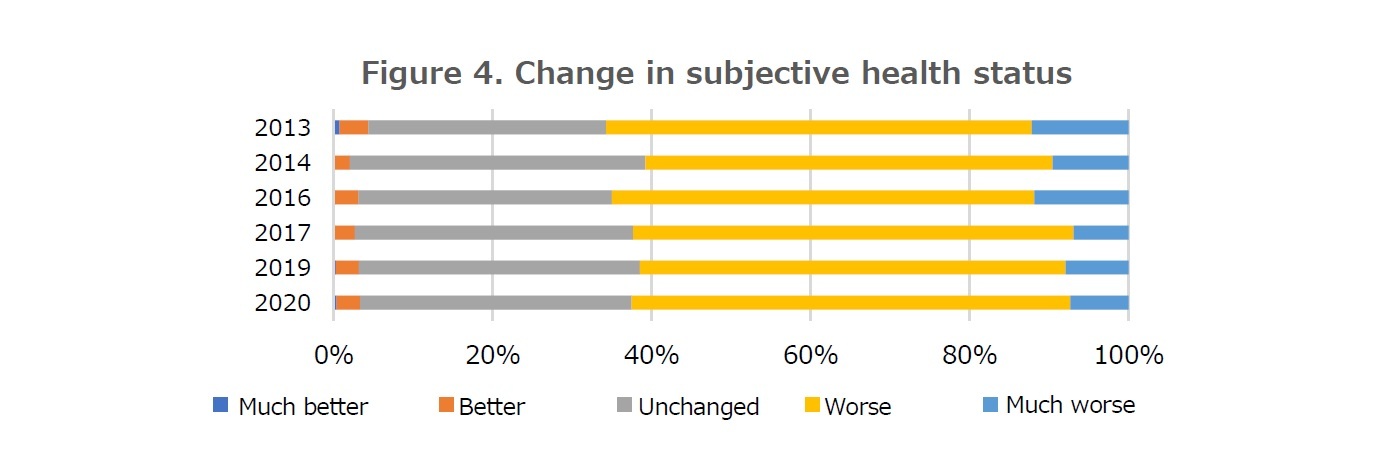
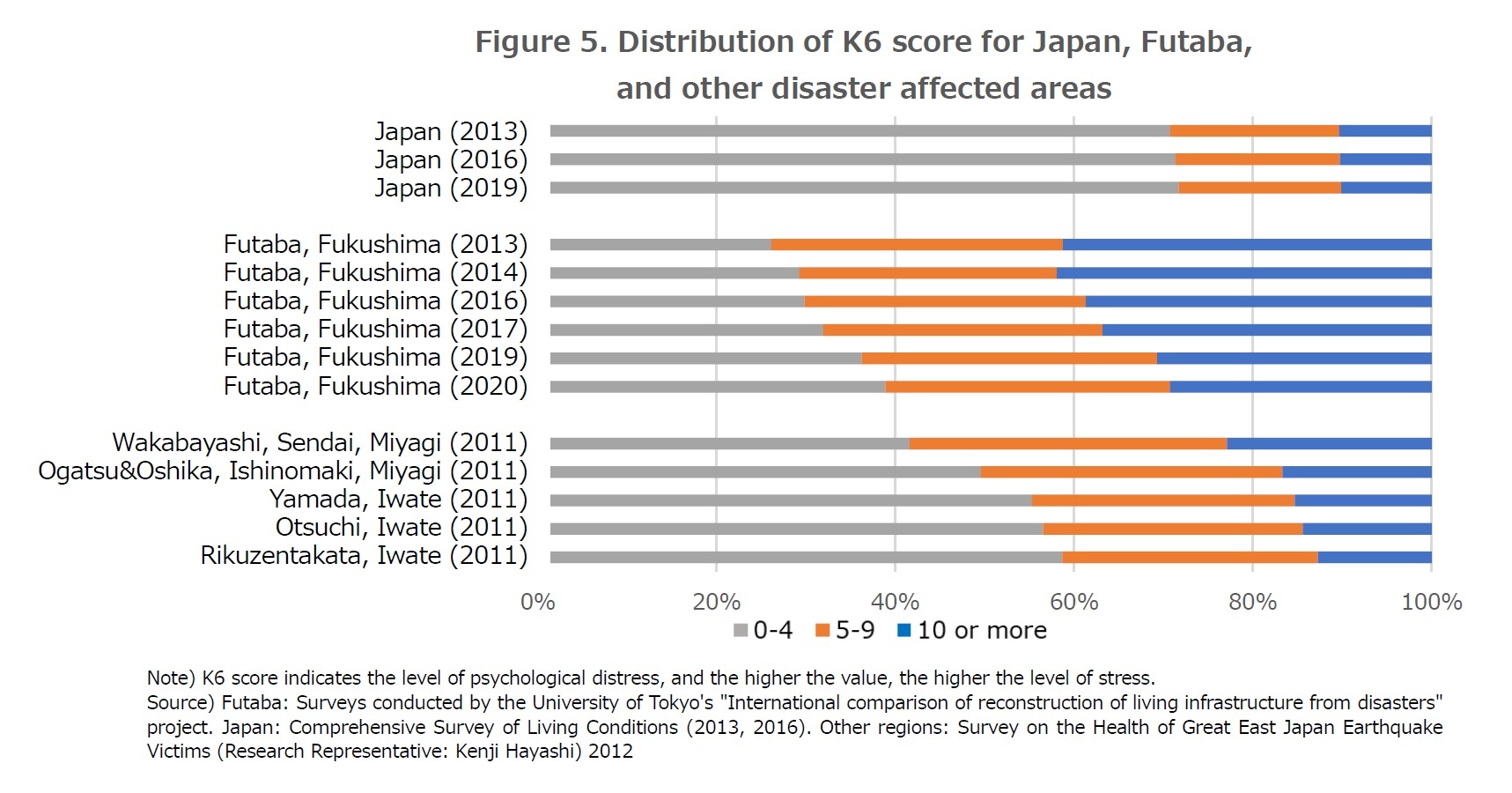
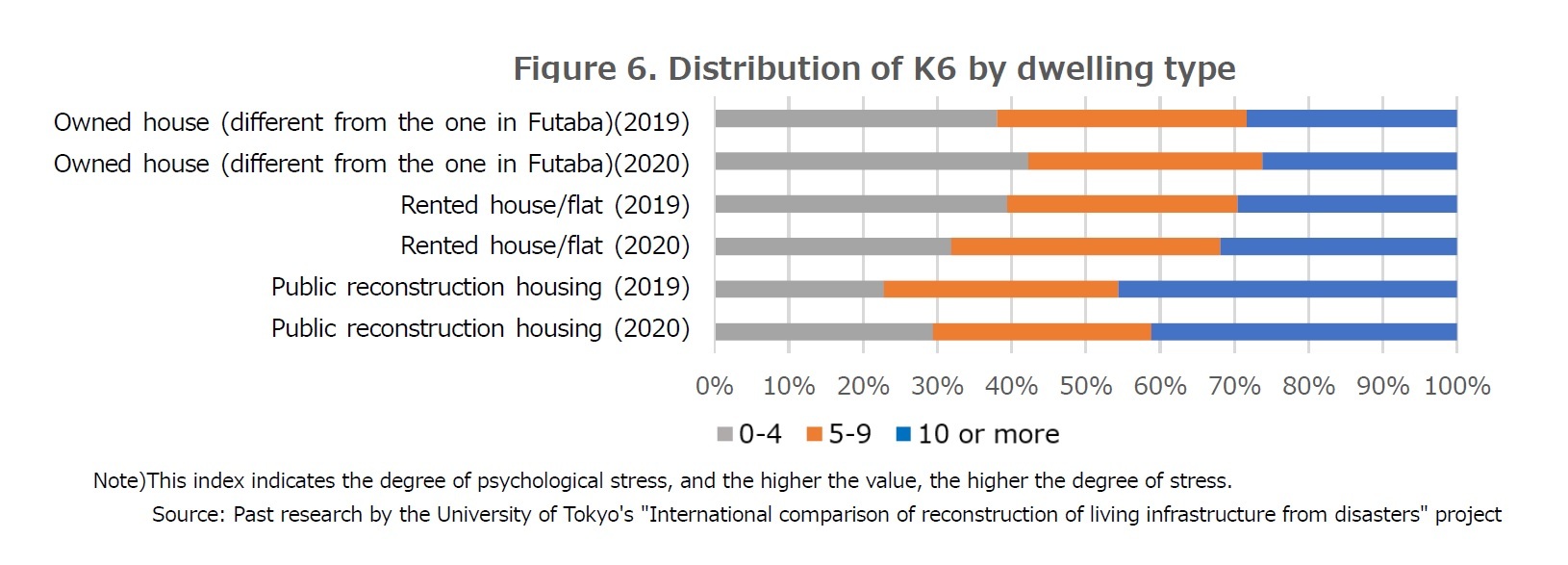
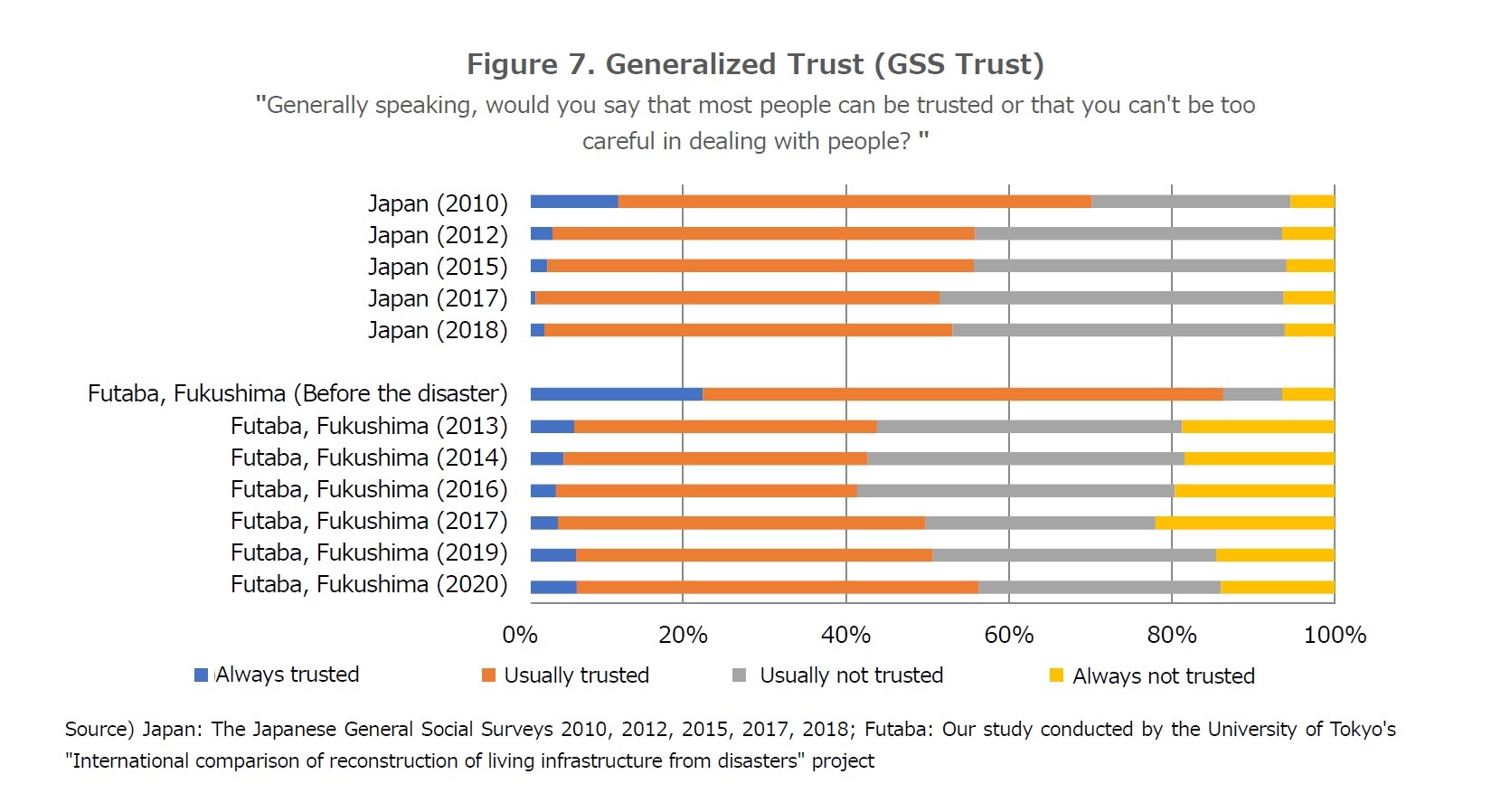

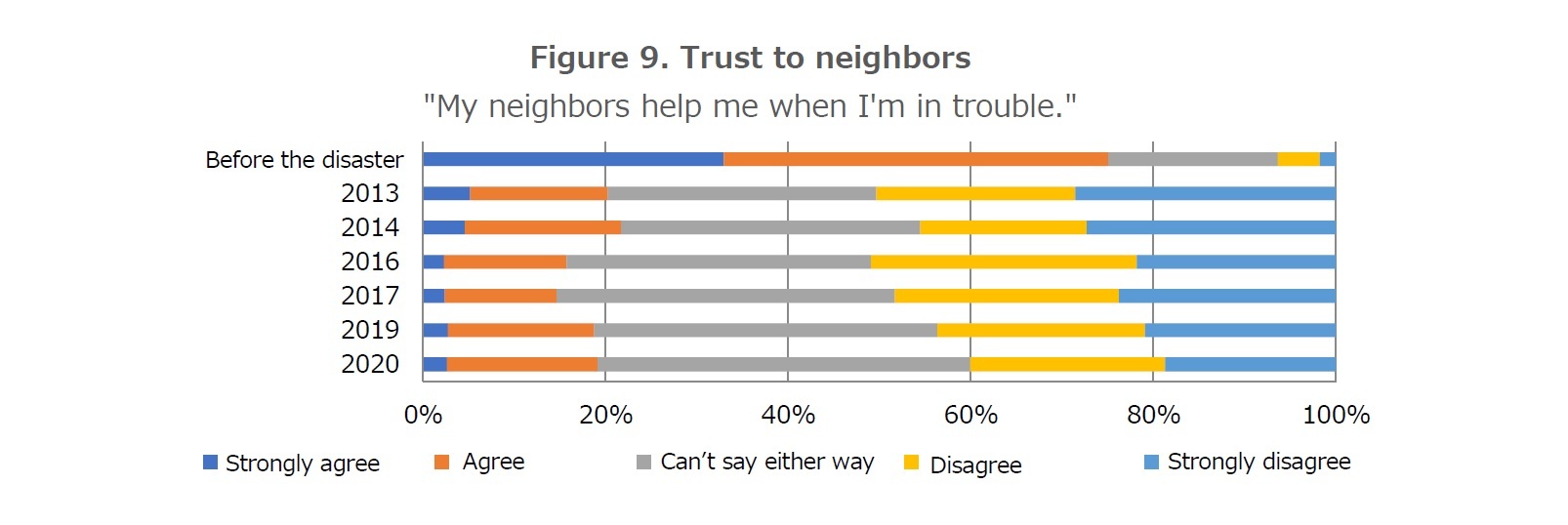
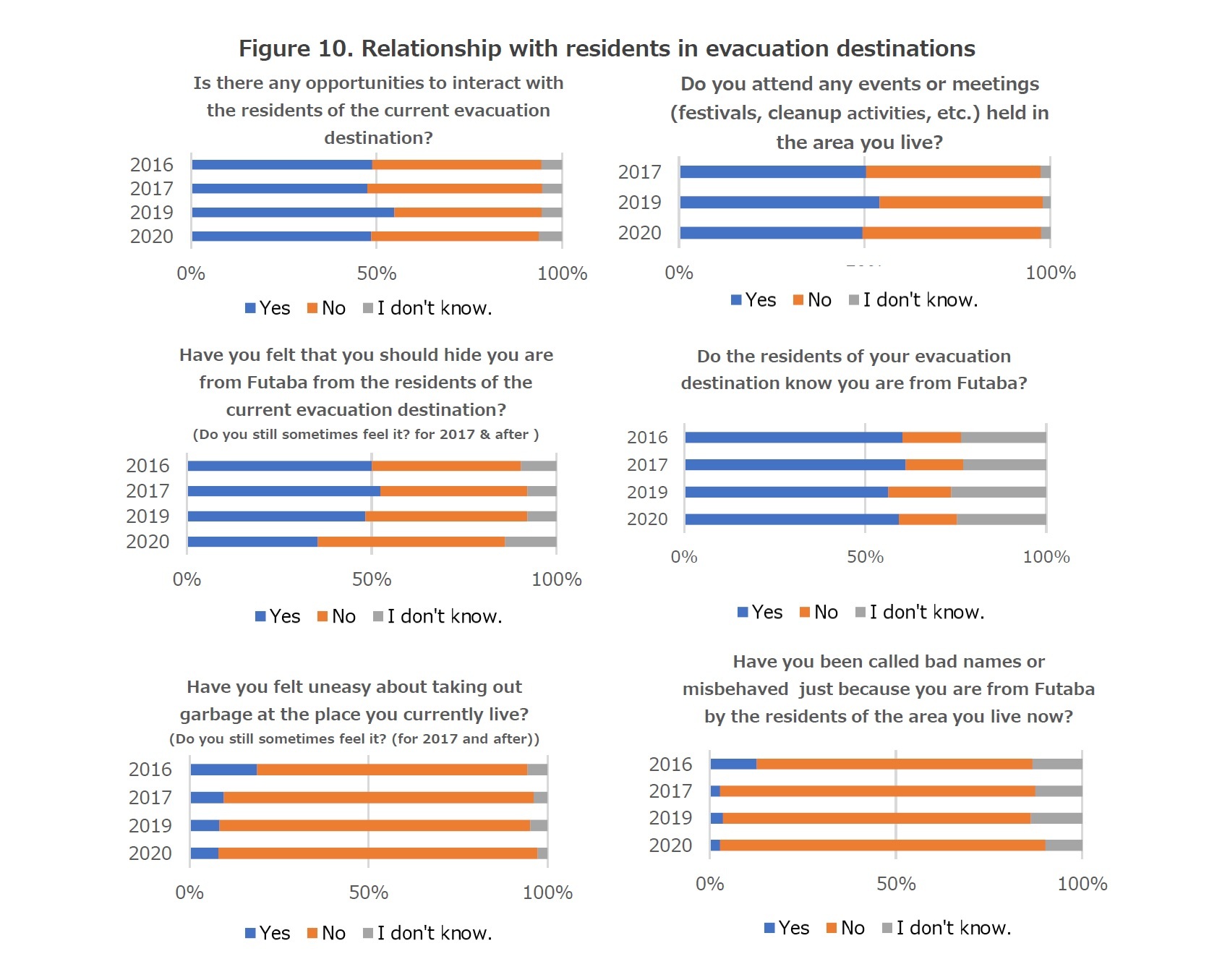

 各種レポート配信をメールでお知らせ。読み逃しを防ぎます!
各種レポート配信をメールでお知らせ。読み逃しを防ぎます!




